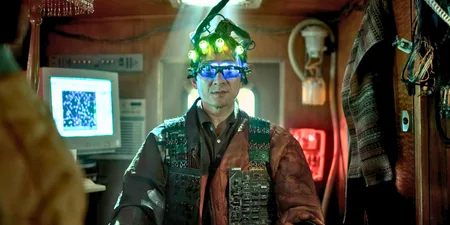The film has already proved controversial following comments from lead actress Liu Yifei
The new live-action remake of the Disney classic Mulan has faced fresh criticisms over the fact that some scenes were shot in the same region where serious human rights abuses in China are alleged to have taken place.
About one million Muslim Uighurs are believed to be held in detention camps in the Xinjiang province.
Documents leaked in 2019 revealed China’s ‘brainwashing’ of Uighurs in the camps. Chinese authorities dismissed the claims as “fake news”.
Mulan was released on the Disney+ streaming service this weekend, and viewers on social media noticed that the film thanked government entities in Xinjiang in the end credits.
https://twitter.com/jeannette_ng/status/1302767969466974208
The “special thanks” section of the credits mentions the “Publicity Department of CPC Xinjiang Uyghur Autonomy Region Committee” and “Turpan Municipal Bureau of Public Security”, a city in eastern Xinjiang.
According to BBC News, the Turpan Security Bureau is tasked with running the camps where the Uighurs detainees are held.
Mulan thanks Turpan Bureau of Public Security because it was filmed in Turpan in 2018, the peak of re-education campaign. How many thousands of Uyghur were put into camps by Turpan Bureau of Public Security when filming Mulan there? https://t.co/yX0xssPnKW
— Shawn Zhang (@shawnwzhang) September 7, 2020
In 2019, The United States Department of Commerce added the Turpan Municipality Public Security Bureau to its Entity List for “engaging in or enabling activities contrary to the foreign policy interests of the United States”.
“This action constricts the export of items subject to the Export Administration Regulations (EAR) to entities that have been implicated in human rights violations and abuses in China’s campaign targeting Uighurs and other predominantly Muslim ethnic minorities in the Xinjiang Uighur Autonomous Region (XUAR),” the Department of Commerce website explained.
The titles of the film credit the region as “Northeastern China”.
"This is ethnic cleansing. Everyone should be concerned about this."
The Chinese government is accused of running concentration camps to unlawfully imprison its Uyghur Muslim population. This woman has not heard from her family since their imprisonment three years go. pic.twitter.com/327xcIeqNe
— PoliticsJOE (@PoliticsJOE_UK) July 23, 2020
It only adds to the growing online campaign to boycott Mulan, which initially began with comments made by the lead actress that supported the actions of police in Hong Kong against pro-democracy protestors.
Liu Yifei, who plays the titular role in the film, posted this on the Chinese social media platform Weibo in August 2019: “I support the Hong Kong police. You can all attack me now. What a shame for Hong Kong.”
When the film hit Disney+ this weekend, #BoycottMulan began trending on Twitter, with the hashtag having been used over 190,000 times.
Since June 2019, Hong Kong has seen constant protests against the Chinese government, triggered by a proposed bill that would allow extradition from Hong Kong to China. It led to continued fears that Hong Kong’s autonomy from mainland China was under threat.
Police in Hong Kong have been accused of using excessive force on protestors in the country, including firing tear gas, bean bags and rubber bullets into crowds.
Mulan was originally intended to be a big theatrical release, but following the coronavirus pandemic, Disney decided to release the film direct to their streaming service – but for an additional cost. From September 4th, the movie has been available for unlimited viewings for the cost of £19.99, until December 4th when Mulan will then be accessible to all Disney+ subscribers.










































